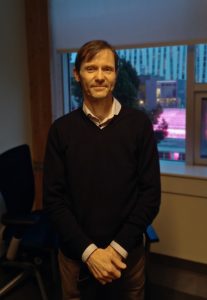Campuses proliferate with discarded masks but have no plans for recycling
Despite a rise in mask-recycling initiatives around the country this year, dedicated environmental advocates call it a hard sell
The University of B.C.’s main campus does not have a COVID-19 mask recycling program even though one of its departments has partnered with a Burnaby-based tech company in launching Canada’s first personal protective equipment recycling project.
Researchers in UBC’s sustainability institute teamed up with Vitacore Industries Inc. nine months ago to set up PPE recycling bins around Metro Vancouver nine months ago, but the university itself doesn’t have any of its own stations for the mask, which contain some difficult-to-recycle elements.
UBC officials say they haven’t set up a mask-recycling program on its own because it would be far too expensive in this experimental phase.
“This is such a recent thing [mask recycling] that the industry hasn’t had time to catch up and provide cost-effective options for reprocessing this material,” said Bud Fraser, UBC’s senior planning and sustainability engineer. Based on a rough calculation, Fraser estimated that it would take nearly $200,000 CAD just to recycle boxes of masks.
“This kind of budget is orders of magnitude bigger than what can be afforded by UBC.”
UBC’s zero-waste co-ordinator, Jenny Goren adds if UBC did initiate any kind of mask-recycling program, there would be a need for monitoring bins at a local level to ensure appropriate materials are being placed in them. Considering the expense involved, the stations would likely be placed in high-volume areas such as The Nest, and that would require constant surveillance.


Vitacore’s team says they didn’t set up any stations on campus because they felt medical clinics with “moderate levels of PPE” would be most appropriate for bin placement. They added that they never had a conversation with UBC about setting up the mask-recycling program on campus.
Vitacore received a Health Canada interim order to start a mask-recycling program in February this year. Last week, the company announced plans for expanding the initiative in Saskatchewan with a pilot program by 2022. Health Canada estimates nearly 63,000 tonnes of COVID-19-related PPE will end up in landfills. Single-use face masks consist of polypropylene, a kind of plastic that cannot be recycled using conventional techniques.
That kind of deficiency is something happening at campuses across Canada, where some people have tried small recycling programs but those have not expanded to serve the whole campus.
A student from Montreal’s Dawson College, Nathan McDonald, collaborated with the Quebec-based Go Zero Recycle to set up mask-recycling bins on his college campus. “I’m glad that I started this project with a small objective in view: recycling the masks I had been hoarding for the past year and a half and allowing others to do the same.”

But while the project holds a “beautiful symbolic and physical value,” he said, the service is expensive.
“Spending that same money on other ecological investments and letting masks be part of our total waste might be a better solution,” he added.
He estimates that 1,000 to 1,500 masks are being thrown out at Dawson every day.
Although the initiative took the university a step closer to following a sustainable lifestyle, it won’t be a turning point for Dawson or its students, he said.
But he wasn’t totally discouraged.
“I do take a lot of comfort knowing that we are reducing a minute fraction of Dawson’s waste, encouraging the circle economy, and spreading awareness about the possibilities of recycling and reuse.”
Fraser says that while the scope for having large-scale mask recycling on campus is limited, there still are small-scale programs such as the Green Labs Program on campus that are efficiently working to make UBC more sustainable. Last year, they piloted a glove-recycling program to increase diversion rates and repurpose plastic waste.
